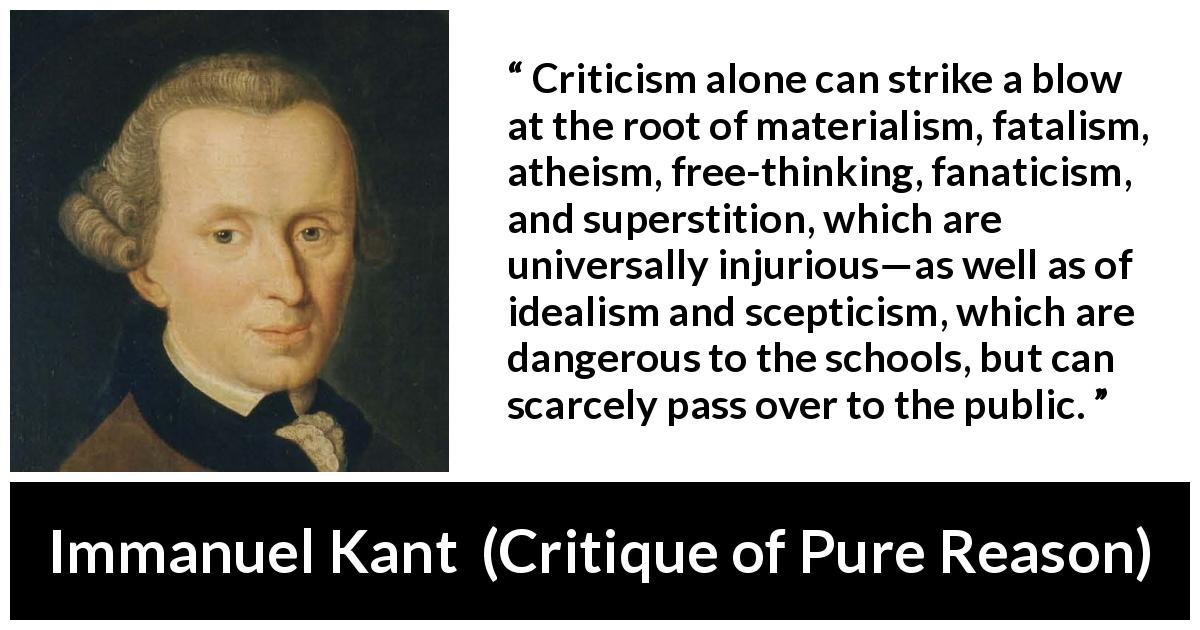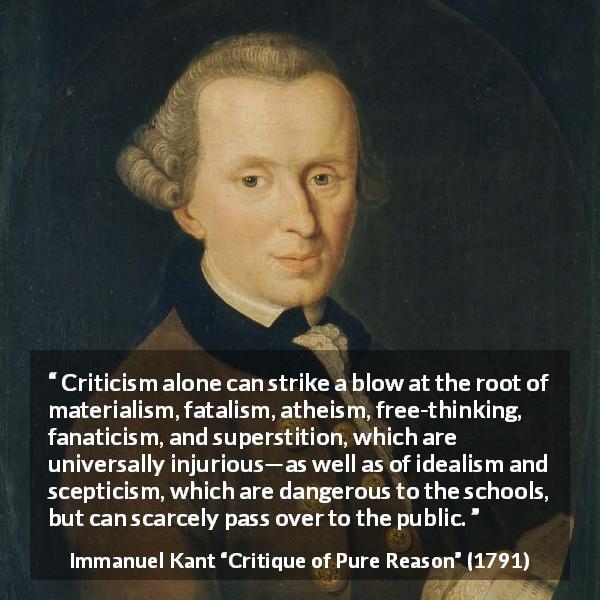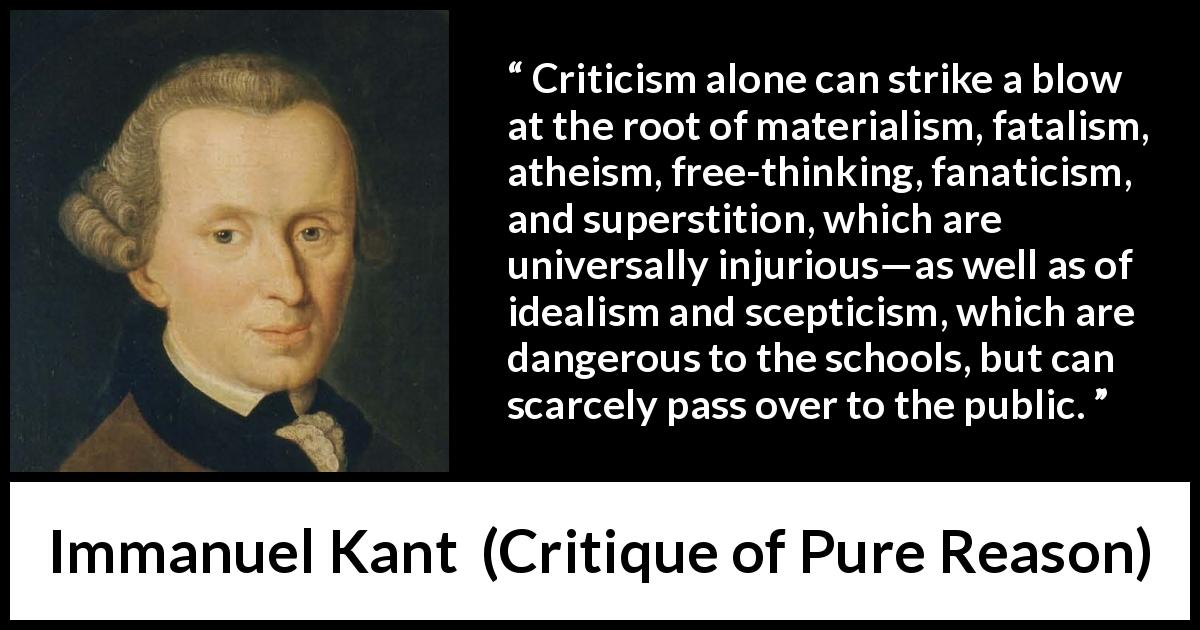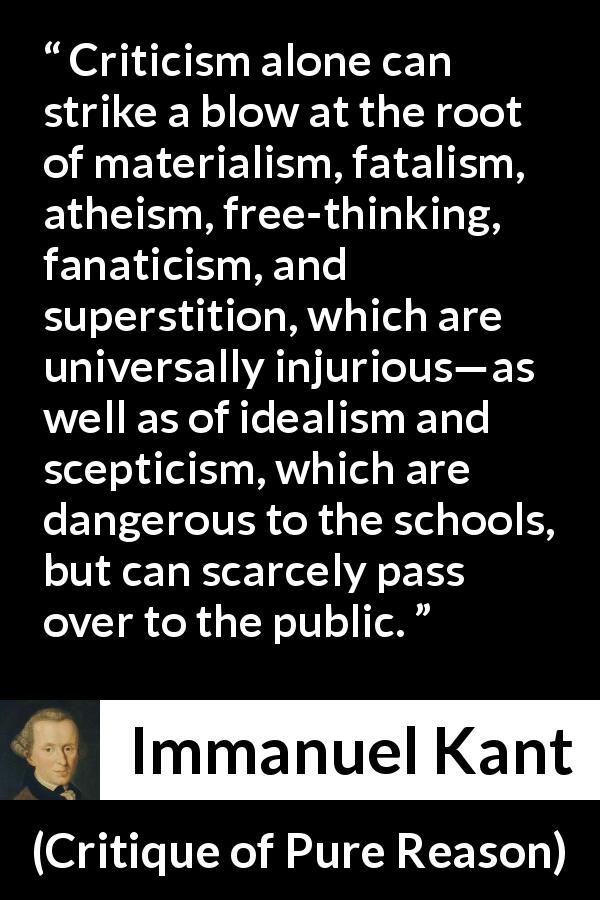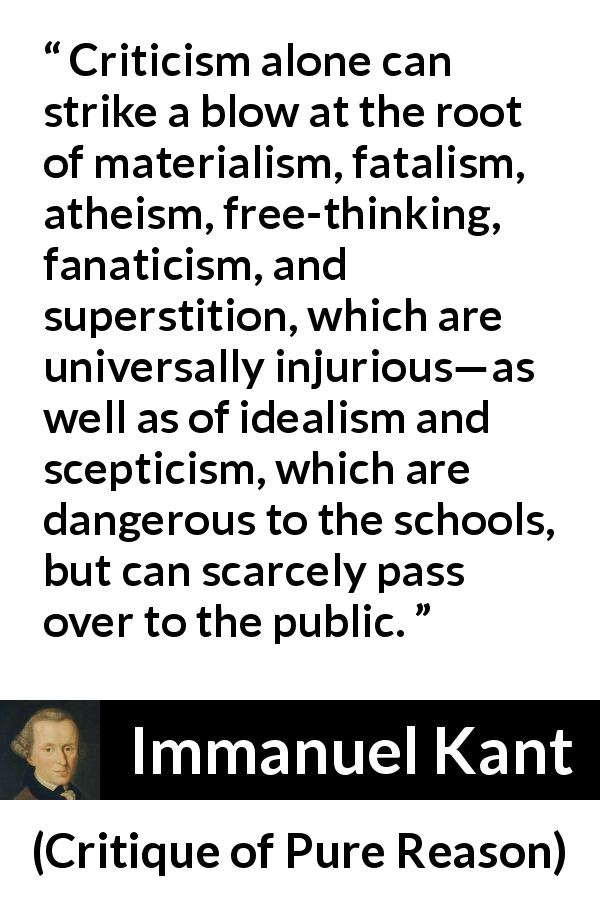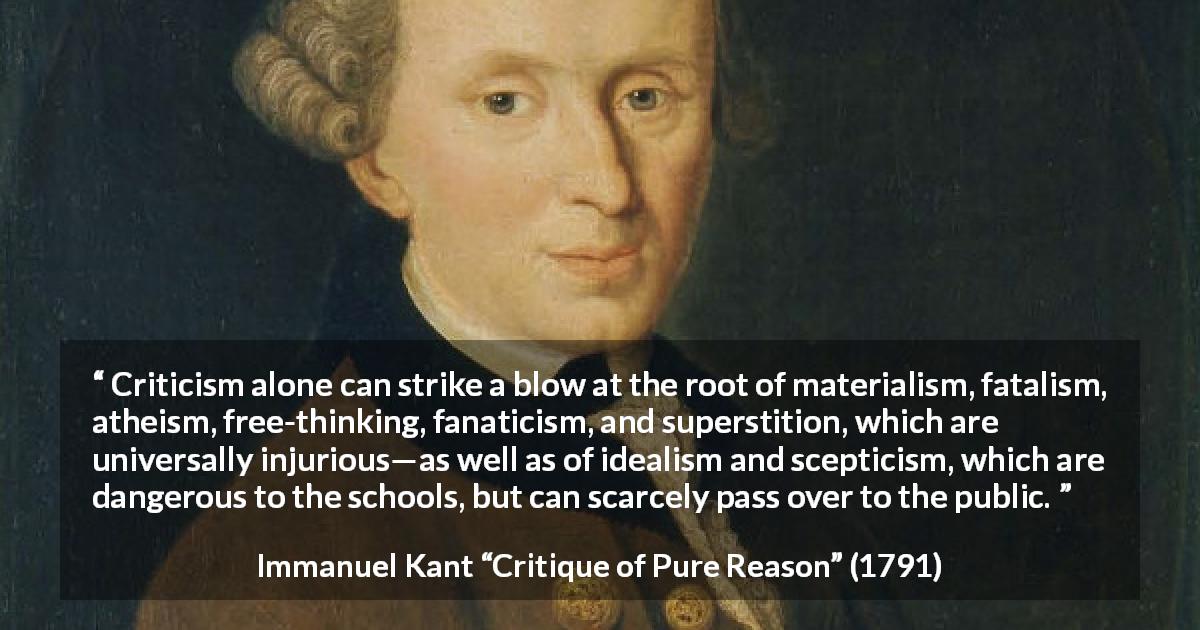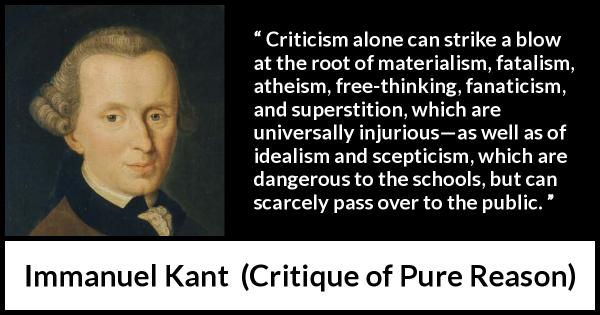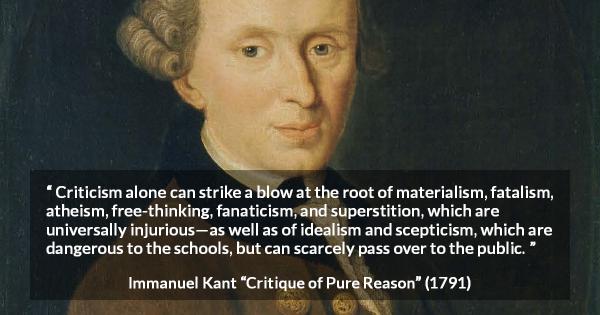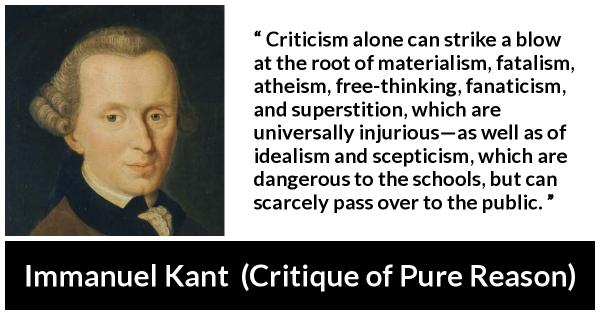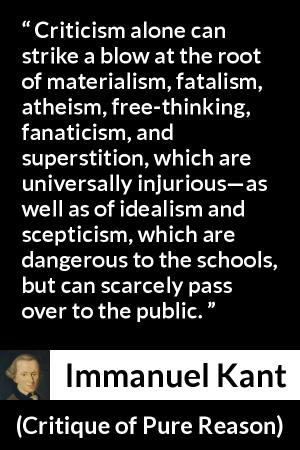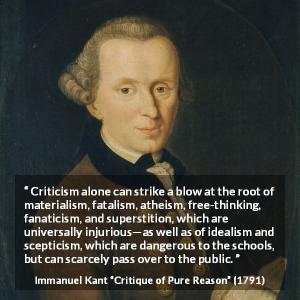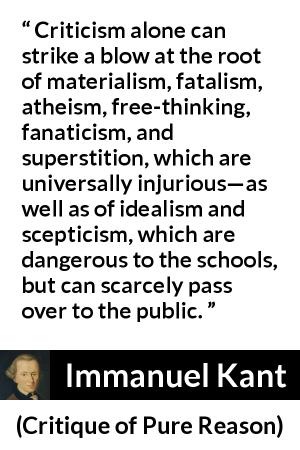“ Criticism alone can strike a blow at the root of materialism, fatalism, atheism, free-thinking, fanaticism, and superstition, which are universally injurious—as well as of idealism and scepticism, which are dangerous to the schools, but can scarcely pass over to the public. ”
Immanuel Kant, Critique of Pure Reason (1791). copy citation
| Author | Immanuel Kant |
|---|---|
| Source | Critique of Pure Reason |
| Topic | scepticism idealism criticism |
| Date | 1791 |
| Language | English |
| Reference | |
| Note | Translated by J. M. D. Meiklejohn |
| Weblink | http://www.gutenberg.org/files/4280/4280-h/4280-h.htm |
Context
“On the other hand, since both inevitably force themselves on every man who rises to the height of speculation, it becomes the manifest duty of the schools to enter upon a thorough investigation of the rights of speculative reason and, thus, to prevent the scandal which metaphysical controversies are sure, sooner or later, to cause even to the masses. It is only by criticism that metaphysicians (and, as such, theologians too) can be saved from these controversies and from the consequent perversion of their doctrines. Criticism alone can strike a blow at the root of materialism, fatalism, atheism, free-thinking, fanaticism, and superstition, which are universally injurious—as well as of idealism and scepticism, which are dangerous to the schools, but can scarcely pass over to the public. If governments think proper to interfere with the affairs of the learned, it would be more consistent with a wise regard for the interests of science, as well as for those of society, to favour a criticism of this kind, by which alone the labours of reason can be established on a firm basis, than to support the ridiculous despotism of the schools, which raise a loud cry of danger to the public over the destruction of cobwebs, of which the public has never taken any notice, and the loss of which, therefore, it can never feel.”
source
